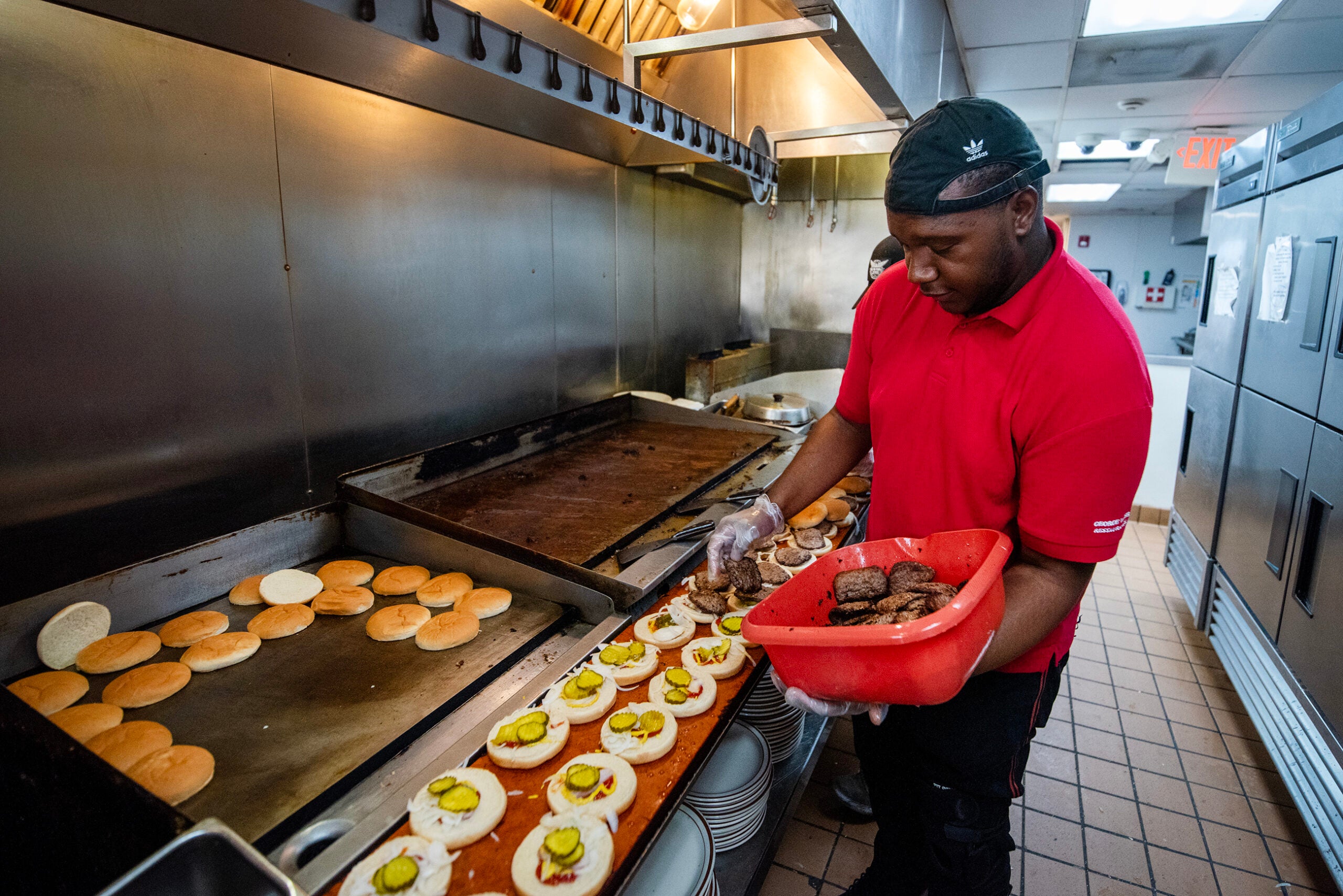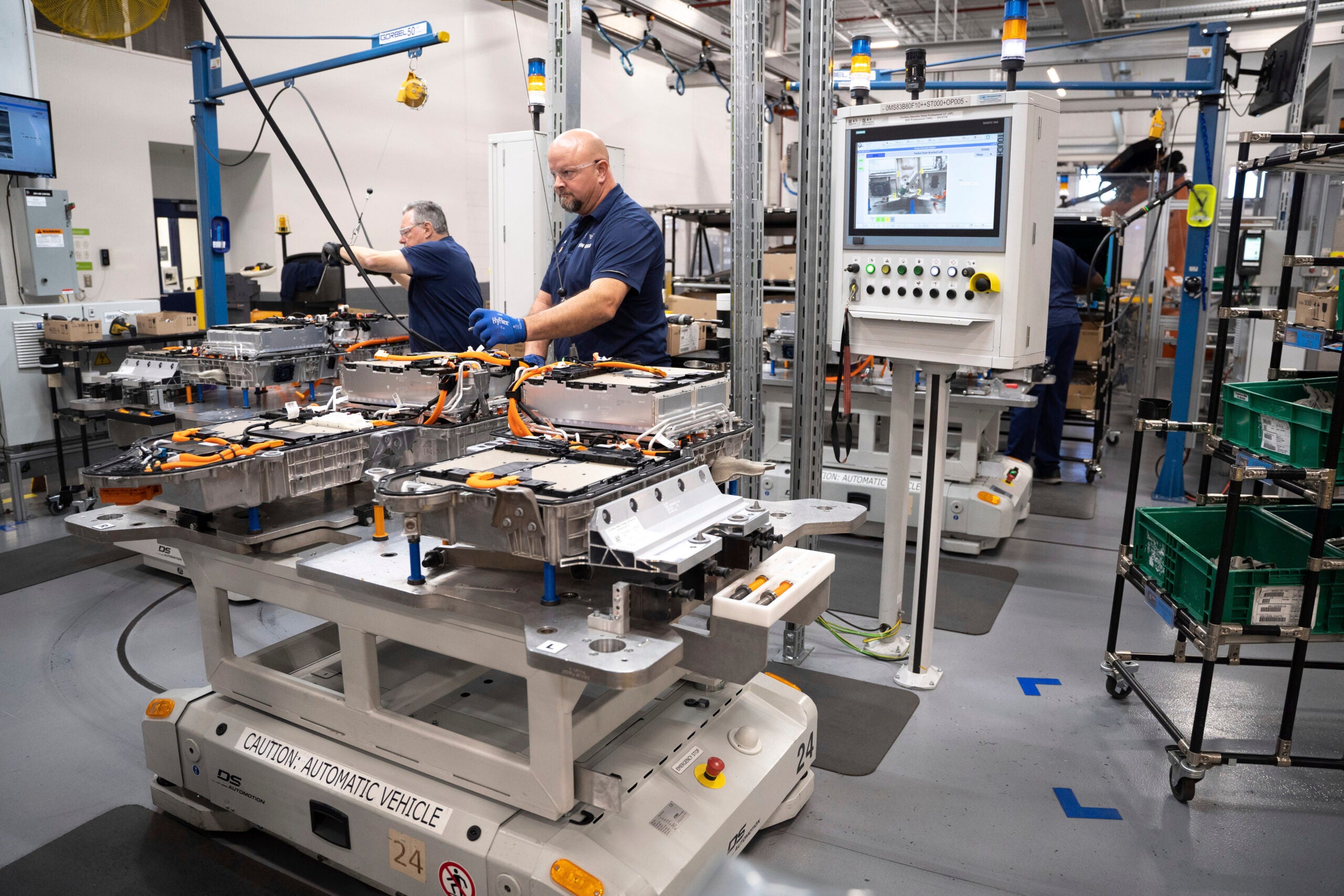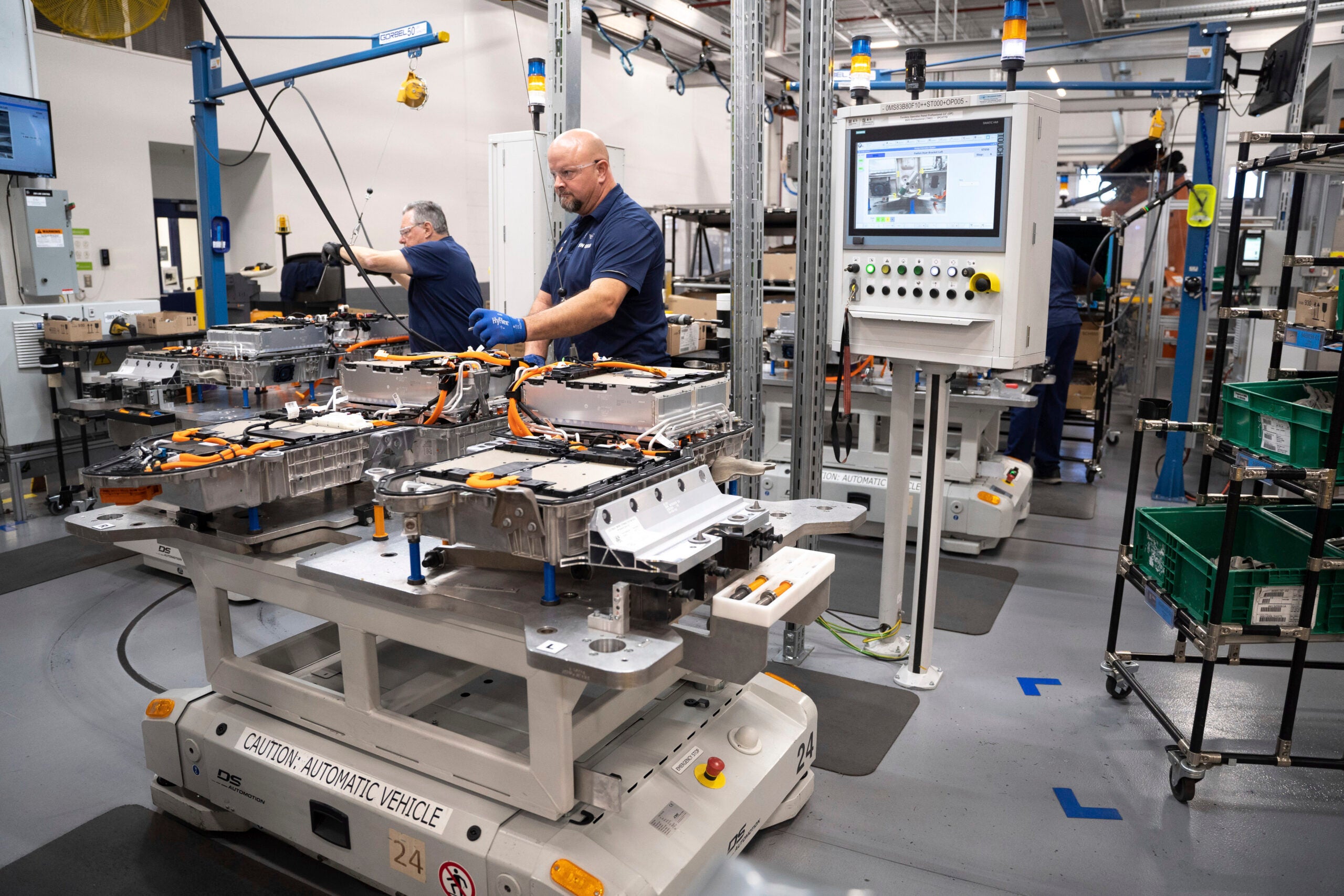Most Wisconsin companies have a pessimistic view of the economy, but fewer think a recession is likely than did six months ago. But even fewer say they plan to hire additional employees in the next six months.
That’s according to a new survey of 170 businesses of varying sizes from state business lobbying giant Wisconsin Manufacturers & Commerce, or WMC.
From winter to summer, the survey shows that the share of employers who think a recession is coming in the next year decreased from 60 percent in January to 54 percent in the newly released survey.
News with a little more humanity
WPR’s “Wisconsin Today” newsletter keeps you connected to the state you love without feeling overwhelmed. No paywall. No agenda. No corporate filter.
Steven Deller, professor of Agricultural and Applied Economics at the University of Wisconsin-Madison, said businesses remain in “wait and see mode,” as they’ve dealt with economic uncertainty since the Federal Reserve began raising interest rates more than a year ago.
“Six months ago, it was like, the Fed is raising interest rates, the sky is falling, the leading economic indicators are all pointing towards recession,” Deller said. “Now, people are going, ‘Well, wait a minute, the sky is not falling.’”
Unemployment rates in Wisconsin have remained at record lows, and recent national data show inflation has come down significantly from 2022 highs. Research from investment banking firm Goldman Sachs says the probability of a U.S. recession in the coming year declined from 35 percent in March to 25 percent last month after the federal government avoided a debt default.
But Menzie Chinn, a professor of public affairs and economics at University of Wisconsin-Madison, said Goldman Sachs’ prediction might be a little rosier than that of most economists. He said economists are anticipating an economic slowdown in the latter half of 2023 or early 2024.
“While people think the chances of a recession are receding, I think the average forecaster still sees a recession coming,” Chinn said. “That being said, I think most of them also think it would be a mild recession.”
Chinn said the economy is still growing, but growth has slowed over the last six months or so. Slowing the economy to cool inflation was the intent behind the Federal Reserve’s interest rate increases.
On Wednesday, the U.S. Department of Labor said headline inflation fell to 3 percent, its lowest level since March 2021. But core inflation, removing volatile food and energy costs, remained relatively high at 4.8 percent, well above the Fed’s target of 2 percent.
Chinn and Deller both said they anticipate the Fed will continue to raise interest rates until core inflation gets closer to the target. Inflation is the increase in the cost of goods and services. Higher interest rates combat inflation by causing a drag on economic growth, as borrowing becomes more expensive.
The potential for a slowdown may be reflected in the employers’ survey answers on hiring plans. The share of businesses planning to add employees decreased from 60 percent six months ago to 49 percent in June in the WMC survey. Communications director Nick Novak said rising interest rates and inflation have already slowed business investment and contributed to lower hiring expectations.
“We’re starting to see the economy is really kind of coming in a little bit, it’s starting to slow down,” he said. “That’s obviously making employers a little bit less optimistic about what their potential is over the next six months and beyond.”
As fewer businesses are looking to hire, the survey shows that wage growth is also slowing. Last summer, almost half of Wisconsin employers planned to raise wages by over 4 percent. That number fell to 21 percent this June.
“When you’re looking for employees — and you can’t find them — one way to try and attract more workers, and to try and retain the workforce that you already have, is to increase wages,” Novak said.
Although just under half of employers surveyed say they’re planning to increase their number of employees, northeast Wisconsin manufacturers are largely continuing their hiring efforts, said Ann Franz, executive director of the NEW Manufacturing Alliance.
She said her organization recently helped host a hiring event that featured 50 employers, with even more that wanted to attend but couldn’t due to space constraints.
“I still believe that hiring is bullish — of course, there are some companies that are not hiring as much as they were pre-pandemic or even right out of the pandemic,” Franz said. “But we are still hearing from employers every week, ‘Where are the people? I need people.’ I still feel very comfortable that we are going to still see lots of opportunities for those seeking positions.”
The share of employers who say they’re having trouble hiring declined from 85 percent to 75 percent in the new survey. While three-quarters is still a vast majority, Novak said the decrease is notable because WMC has seen more than 80 percent of employers struggling to hire for the last couple of years.
“You are starting to see some companies that aren’t struggling to hire because maybe they’ve now hired all the people they need, and they don’t need to hire any more right at this moment,” Novak said. “Or maybe there are more people who are coming back into the workforce.”
He also said Wisconsin’s aging workforce and structural labor shortage could help insulate the state from a major spike in unemployment during a short-term recession, but it presents a long-term obstacle.
“The biggest challenge that we face as a state is demographics,” Novak said. “We need to find a way to grow our population, grow our workforce, and that in turn will help grow our economy.”
Wisconsin Public Radio, © Copyright 2025, Board of Regents of the University of Wisconsin System and Wisconsin Educational Communications Board.







